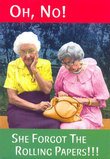November 9, 2008
Obama and the War on Brains
By NICHOLAS D. KRISTOF
Barack Obama’s election is a milestone in more than his pigmentation. The second most remarkable thing about his election is that American voters have just picked a president who is an open, out-of-the-closet, practicing intellectual.
Maybe, just maybe, the result will be a step away from the anti-intellectualism that has long been a strain in American life. Smart and educated leadership is no panacea, but we’ve seen recently that the converse — a White House that scorns expertise and shrugs at nuance — doesn’t get very far either.
We can’t solve our educational challenges when, according to polls, Americans are approximately as likely to believe in flying saucers as in evolution, and when one-fifth of Americans believe that the sun orbits the Earth.
Almost half of young Americans said in a 2006 poll that it was not necessary to know the locations of countries where important news was made. That must be a relief to Sarah Palin, who, according to Fox News, didn’t realize that Africa was a continent rather than a country.
Perhaps John Kennedy was the last president who was unapologetic about his intellect and about luring the best minds to his cabinet. More recently, we’ve had some smart and well-educated presidents who scrambled to hide it. Richard Nixon was a self-loathing intellectual, and Bill Clinton camouflaged a fulgent brain behind folksy Arkansas aphorisms about hogs.
As for President Bush, he adopted anti-intellectualism as administration policy, repeatedly rejecting expertise (from Middle East experts, climate scientists and reproductive health specialists). Mr. Bush is smart in the sense of remembering facts and faces, yet I can’t think of anybody I’ve ever interviewed who appeared so uninterested in ideas.
At least since Adlai Stevenson’s campaigns for the presidency in the 1950s, it’s been a disadvantage in American politics to seem too learned. Thoughtfulness is portrayed as wimpishness, and careful deliberation is for sissies. The social critic William Burroughs once bluntly declared that “intellectuals are deviants in the U.S.”
(It doesn’t help that intellectuals are often as full of themselves as of ideas. After one of Stevenson’s high-brow speeches, an admirer yelled out something like, You’ll have the vote of every thinking American! Stevenson is said to have shouted back: That’s not enough. I need a majority!)
Yet times may be changing. How else do we explain the election in 2008 of an Ivy League-educated law professor who has favorite philosophers and poets?
Granted, Mr. Obama may have been protected from accusations of excessive intelligence by his race. That distracted everyone, and as a black man he didn’t fit the stereotype of a pointy-head ivory tower elitist. But it may also be that President Bush has discredited superficiality.
An intellectual is a person interested in ideas and comfortable with complexity. Intellectuals read the classics, even when no one is looking, because they appreciate the lessons of Sophocles and Shakespeare that the world abounds in uncertainties and contradictions, and — President Bush, lend me your ears — that leaders self-destruct when they become too rigid and too intoxicated with the fumes of moral clarity.
(Intellectuals are for real. In contrast, a pedant is a supercilious show-off who drops references to Sophocles and masks his shallowness by using words like “fulgent” and “supercilious.”)
Mr. Obama, unlike most politicians near a microphone, exults in complexity. He doesn’t condescend or oversimplify nearly as much as politicians often do, and he speaks in paragraphs rather than sound bites. Global Language Monitor, which follows linguistic issues, reports that in the final debate, Mr. Obama spoke at a ninth-grade reading level, while John McCain spoke at a seventh-grade level.
As Mr. Obama prepares to take office, I wish I could say that smart people have a great record in power. They don’t. Just think of Emperor Nero, who was one of the most intellectual of ancient rulers — and who also killed his brother, his mother and his pregnant wife; then castrated and married a slave boy who resembled his wife; probably set fire to Rome; and turned Christians into human torches to light his gardens.
James Garfield could simultaneously write Greek with one hand and Latin with the other, Thomas Jefferson was a dazzling scholar and inventor, and John Adams typically carried a book of poetry. Yet all were outclassed by George Washington, who was among the least intellectual of our early presidents.
Yet as Mr. Obama goes to Washington, I’m hopeful that his fertile mind will set a new tone for our country. Maybe someday soon our leaders no longer will have to shuffle in shame when they’re caught with brains in their heads.
I invite you to comment on this column on my blog, www.nytimes.com/ontheground, and join me on Facebook at www.facebook.com/kristof.
Copyright 2008 The New York Times Company
http://www.nytimes.com/2008/11/09/opinion/09kristof.html?partner=permalink&exprod=permalink
Monday, November 10, 2008
Subscribe to:
Post Comments (Atom)



No comments:
Post a Comment